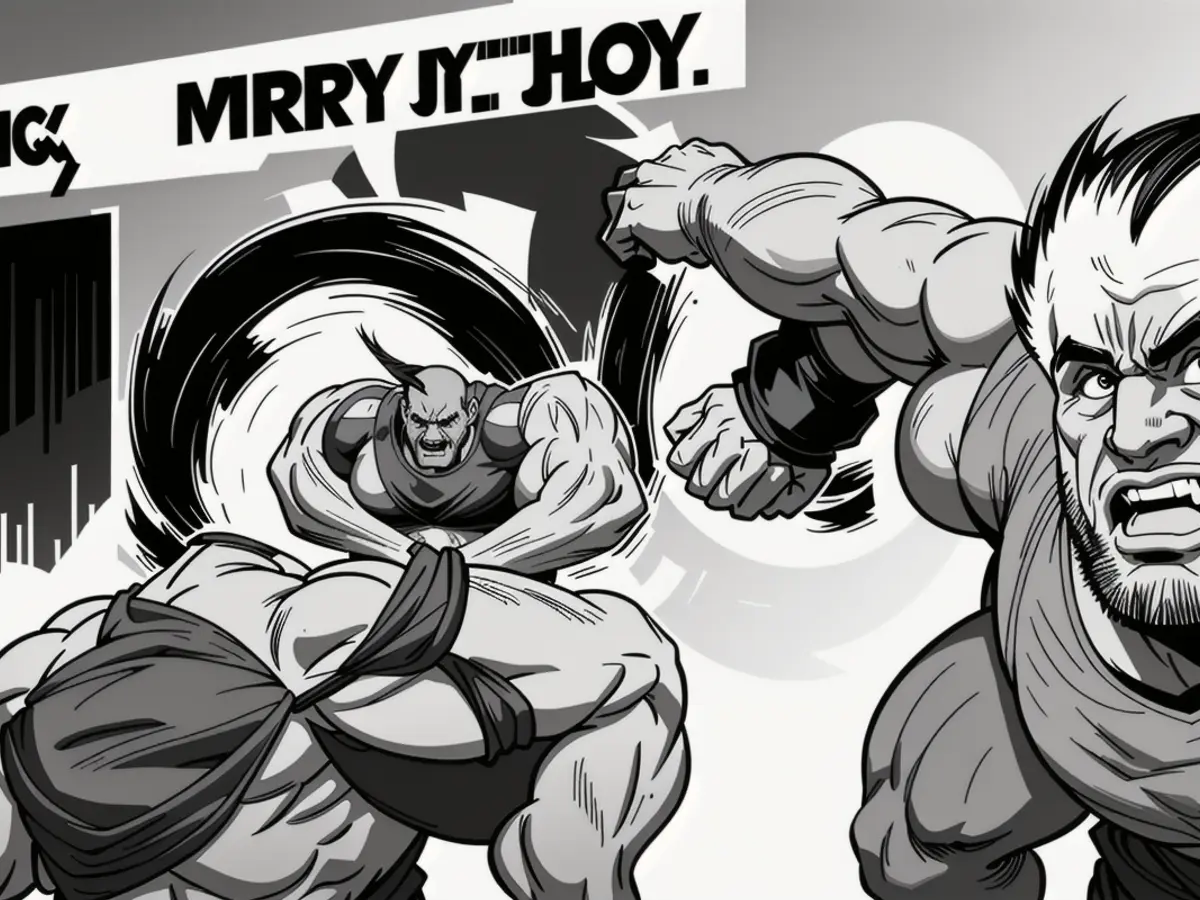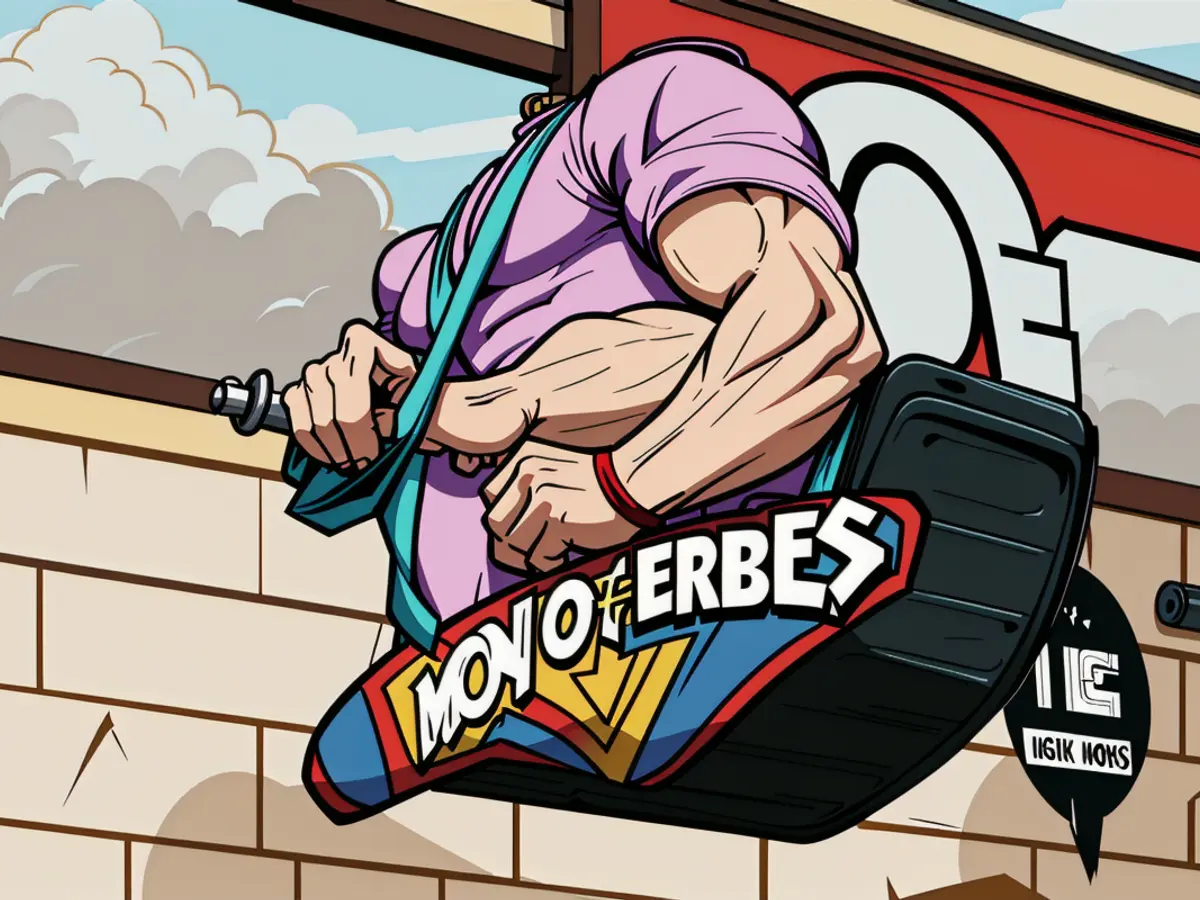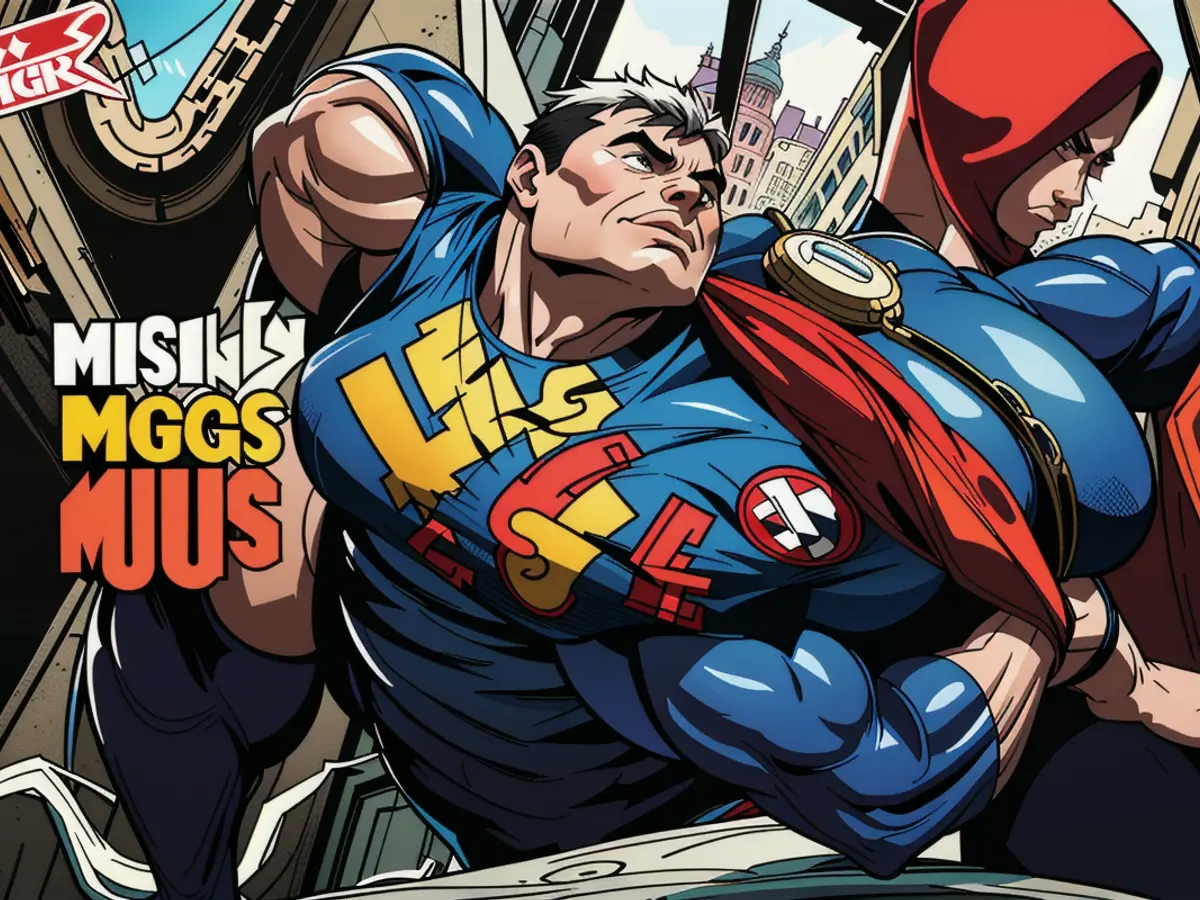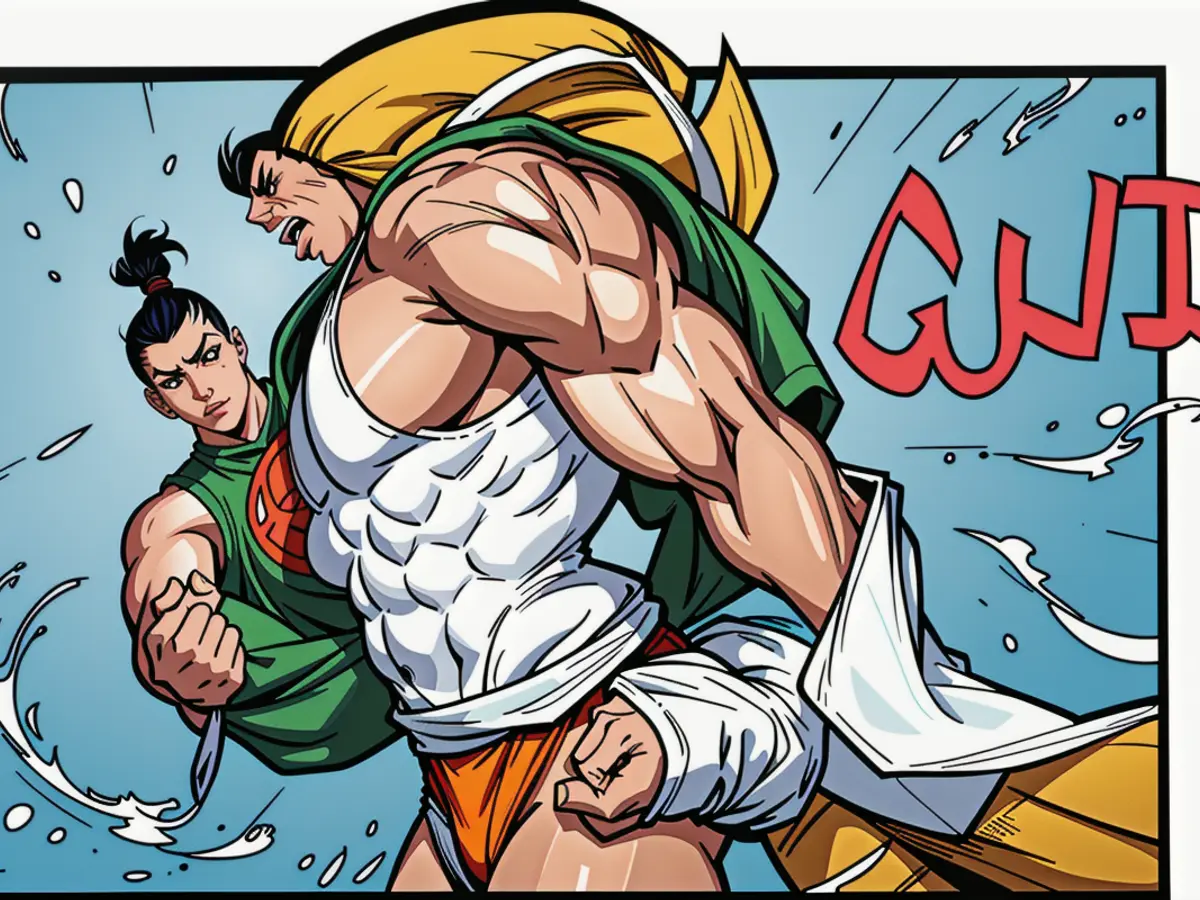CEO of Ben & Jerry's Dismissed - Implications for Activist-Driven Food Industry
Revised Article:
For four decades, Ben & Jerry's has been the ice cream brand that isn't afraid to take a stand. Unlike many enterprises who tactfully edge towards activism to avoid backlash, the Vermont-based company has been unapologetically vocal. From employee walkouts to TikTok takedowns and calls for justice reform, their activism wasn't simply a marketing ploy; it became an integral part of their recipe. But with the unexpected ousting of CEO Dave Stever and ongoing friction with Unilever, the company finds itself grappling with a familiar yet elevated question: Can a values-driven business retain its identity under corporate rule?
Ben Cohen and Jerry Greenfield, the dreamers who transformed ice cream into a vehicle for change, set the foundation for a brand that blended activism with cultural relevance. However, as leadership changes and corporate oversight becomes more dominant, the question remains: Does Ben & Jerry's still dictate its own mission, or is the corporate takeover finally catching up?
Inkling Activism into Ben & Jerry's DNA
Even when flavors failed to make it to stores, the brand's politically charged approach grabbed headlines. A prime example being Eat the Rich, an ice cream concept that never materialized but sparked excitement as a symbol of consumer's fascination with corporate dissent. The idea breathed life into the brand's knack for fueling cultural conversations, whether a pint ever hit the shelves or not.
In today's climate, can an activist-driven brand stay afloat when its corporate master is pulling the strings? From the get-go, Ben & Jerry's wasn't merely selling ice cream; it was selling a worldview. On its official website, the brand asserts, "We believe in using our business to make the world a better place." Unlike most corporations who pick and choose causes for PR moments, Ben & Jerry's entrenched activism into the very fabric of their business model.
Here's how they did it:

- Blunt, Unwavering Stances: From climate change to LGBTQ+ rights, Ben & Jerry's never shied away from vocalizing opinions on contentious political issues. Their Issues We Care About page reads more like a grassroots manifesto than a corporate agenda.
- Employee-Driven Activism: The brand encourages employees to participate in protests, sign petitions, and speak out. This collective voice reinforces that their work isn't just about scooping cream—it's about sparking change.
- Ice Cream As Protest: Limited-time releases like Justice ReMix'd and Pecan Resist transformed dessert into a platform for activism, funding progressive causes while delivering a powerful message.
- Legal Stalemates & Corporate Accountability: Despite being owned by Unilever, Ben & Jerry's has taken legal action against their parent company to prevent the sale of their ice cream in Israeli settlements.
The Firing of CEO Dave Stever: A Shift in Power?
In early 2025, Dave Stever, a 34-year company veteran, was dismissed from his role as CEO of Ben & Jerry's. This wasn't a quiet departure; it was a bold move by Unilever that suggested a greater intrusion into Ben & Jerry's leadership.
While Unilever has yet to disclose a reason for Stever's dismissal, it stirs pressing questions about whether Ben & Jerry's can preserve its independence when its corporate parent exerts more control. The lawsuit filed by the Ben & Jerry's board against Unilever in 2022 over product sales in Israeli settlements revealed the growing tensions between the brand and its corporate overlord.
Ben & Jerry's has a unique corporate structure designed to protect its activist mission, even after its 2000 acquisition by Unilever:
- Independent Board of Directors: Unlike other Unilever-owned brands, Ben & Jerry's boasts an independent board specifically tasked with defending the company's social mission.
- Merger Agreement Protections: The 2000 acquisition agreement required consultation with the board for key decisions, including the hiring or firing of a CEO.
- Social Mission Oversight: The board's role is to safeguard the brand's activist identity, a role that appears to be under increasing threat.

Stever's departure appears to contradict the original terms of Ben & Jerry's corporate structure.
Can A Corporate-Owned Activist Brand Survive?
This isn't about one leadership change; it's about the lingering tension between corporate ownership and brand activism. Can an activist-centered company thrive within a global conglomerate?
Ben & Jerry's is fighting to maintain its identity, but it's just one of a handful of high-profile brands struggling under corporate consolidation, where core values often get diluted. While Unilever benefits from Ben & Jerry's brand loyalty, the ongoing clash between the two raises questions about how long an activist-led brand can survive under corporate leadership.
The outcome isn't only theoretical; Ben & Jerry's founders have openly discussed repurchasing the brand from Unilever to preserve its mission. As reported by Bloomberg, Ben Cohen and Jerry Greenfield are exploring ways to regain control of the company.
If this were to happen, it would be a rare example of a brand successfully reclaiming independence from a multinational corporation. But for now, Ben & Jerry's remains in the middle of a high-stakes battle over what it means to be a corporate activist brand in an era of soured consumer trust.

Deteriorating Trust in Corporate Activism
This battle isn't taking place in isolation. Trust in corporate activism is at a record low. The 2025 Edelman Trust Barometer found:
- Brands that once boldly championed causes now scale back due to backlash.
- Consumers view brands with skepticism when their commitments to causes lack action.
- 81% of highly disenchanted individuals view businesses as unethical.
In contrast, Ben & Jerry's has remained steadfast for decades. Unlike other companies who tiptoe around political issues, Ben & Jerry's has never pretended to be neutral. Whether it's been boycotts, lawsuits, or leadership changes, the brand has consistently stood by its values, even when they put them at odds with its corporate owner.
What happens next? Time will tell. Will the company allow Ben & Jerry's to continue operating as a values-driven brand, or will corporate control ultimately reshape its identity? One thing is clear: Ben & Jerry's isn't backing down. And in an era of performative brand activism, that still matters.
Enrichment Data:

Overall:
The abrupt firing of Ben & Jerry's CEO, Dave Stever, has sparked concerns about the brand's ability to uphold its activist identity under Unilever's control. Key insights include:
Impact on Activism
- Allegations of Silencing: Sources say Unilever has been muzzling Ben & Jerry's activist voice, preventing posts about sensitive topics like abortion rights, climate change, and Palestinian rights[1][3][4].
- Political Silencing: Reports indicate that Stever's vocal commitment to Ben & Jerry's social mission—including criticisms of Donald Trump and advocacy for progressive causes—were influential factors in his dismissal[2][4][5].
Corporate Conflict
- Merger Agreement Dispute: The lawsuit filed by Ben & Jerry's board against Unilever alleges that Unilever breached the 2000 merger agreement by firing Stever without consulting the brand's independent board. The agreement was designed to protect Ben & Jerry's social mission[1][2][3].
- Parent Company's Influence: Unilever's efforts to silence Ben & Jerry's have escalated a legal battle. The lawsuit accuses Unilever of eroding Ben & Jerry's ability to maintain its independent voice and activist identity[3][5].
Future of Activism
- Uncertain Future: The ongoing legal dispute between Ben & Jerry's and Unilever leaves the brand's activist future uncertain[2][3].
- Business Implications: The outcome of this struggle will have far-reaching effects, posing questions about how much autonomy values-driven brands can retain within larger corporate structures[2][3].
- The firing of Ben & Jerry's CEO, Dave Stever, raises questions about the brand's ability to maintain its activist identity under Unilever's control, especially if corporate interests start to interfere with initiatives like climate change, LGBTQ+ rights, and social justice.
- Brands like Ben & Jerry's, known for entrenching activism into their business model, face a reality check when corporate parent companies like Unilever tread on their corporate governance structures, such as the independent board and consulting for key decisions like hiring or firing a CEO.
- In a period where trust in corporate activism is at an all-time low and consumers demand real action, it's crucial for values-driven brands like Ben & Jerry's to preserve their unique identity and cultural relevance, rather than getting diluted under corporate consolidation.





